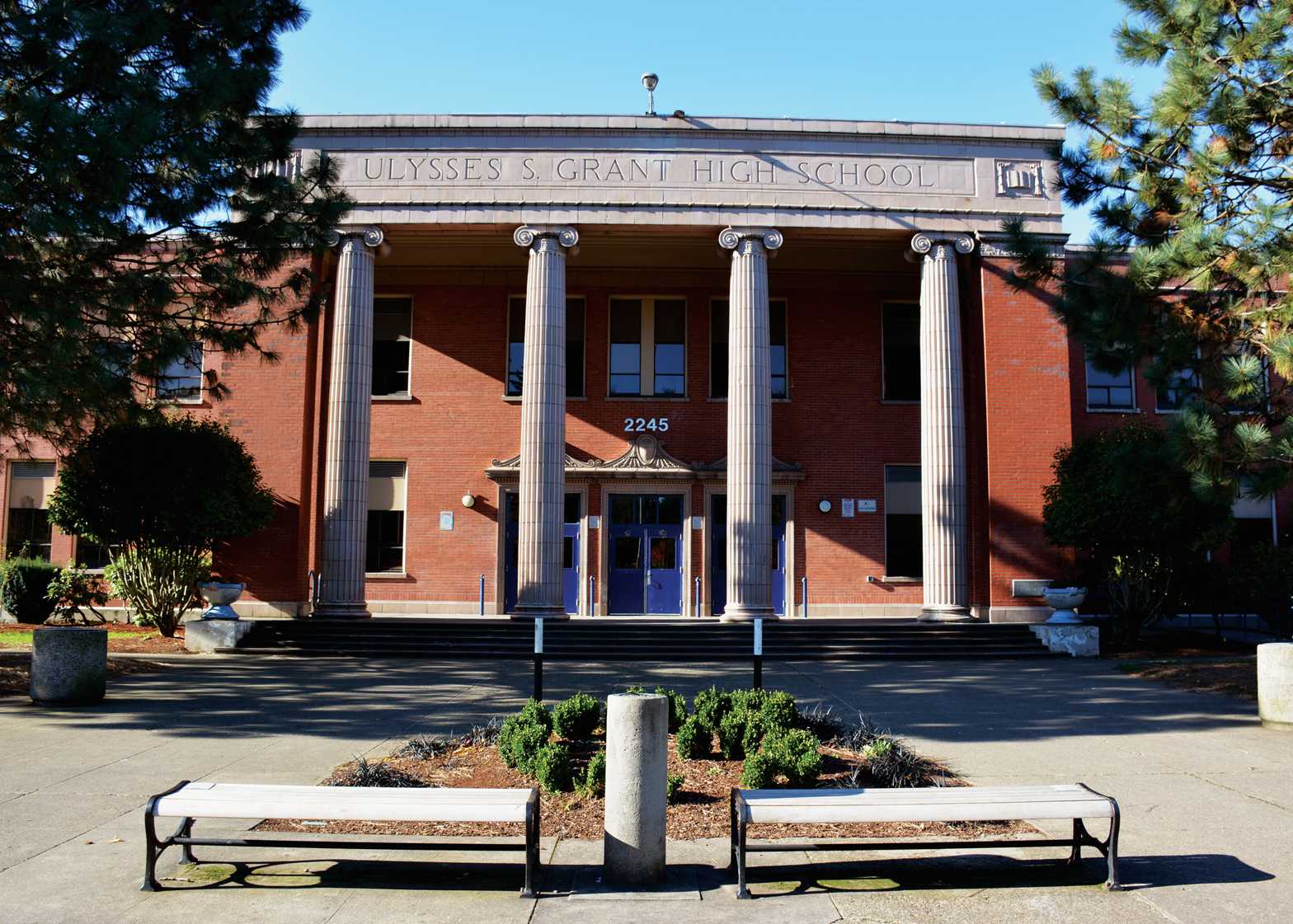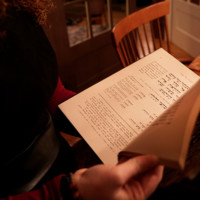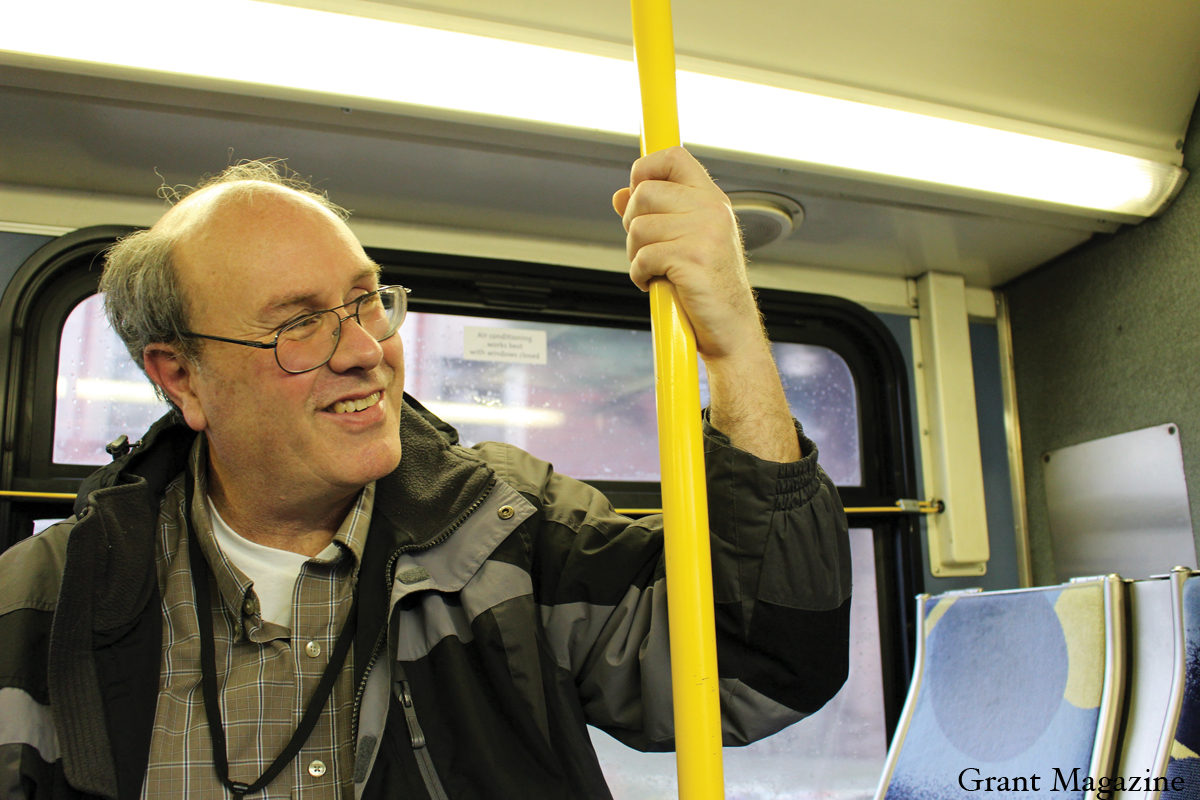
Grant High School administrators have investigated several students for posting racist and misogynistic messages on social media, Grant Magazine has learned.
According to sources familiar with the case, the original dialogue between the students – all of whom are freshmen boys and white – began as a group text and dated back to last fall. Later, the group allegedly published photos with captions on a private Instagram page that was eventually reported to the school by a Grant student.
In one photo, the social media page featured a photo of a black Grant student that was taken during a class. The caption referred to the student with a racist slur used to degrade African Americans.
Another post pulled from the Internet featured a young person on the Instagram page with a reference to raping her underneath.
In a screen shot from the Internet, the students are alleged to have made light of women facing domestic violence. Sources who are aware of the investigation say that post showed a woman with a black eye with a caption underneath. It stated that one-third of women are physically abused by men; therefore two-thirds of men “aren’t doing their jobs.”
It’s alleged that a number of the social media posts by the freshmen freely used the word “nigger” to refer to themselves, black students and others. The posts may have dated back to September 2014, sources with knowledge of the case say.
Principal Carol Campbell says she can’t comment on any aspect of the investigation for student privacy reasons. But she says racism, misogyny or any form of discrimination is unacceptable at her school and won’t be tolerated.
When asked about the case, Grant Vice Principal Kristyn Westphal says: “I’m not free to comment on details of any student disciplinary matter due to confidentiality. Grant High School takes matters of racial, gender-based and other forms of discrimination very seriously and follows district guidelines to address these types of situations and to restore any harm done to the community.”
Grant Magazine isn’t naming the accused students because they are juveniles and all student discipline records are privileged information. A search by the magazine of the students’ social media accounts didn’t reveal any of the racist or misogynistic material that spurred the investigation.
Meanwhile, news of the incidents has left some Grant students reeling. When told by Grant Magazine about the posts, students had a visceral reaction. Many were concerned by the racist and misogynistic characterizations, and wondered how such behavior could happen at the school.
“I can’t believe that those people would do that because I know some of them pretty well,” says Grant freshman Sadie Thorburn, who is white. “And I couldn’t believe that they were the people who had done that…I was just shocked.”
Brianna Grisby is an African-American senior at Grant. She says she faults parents who don’t teach their kids about race.
“I know Portland is the whitest city but I think people don’t understand that racism is still alive and that a lot of African Americans at Grant High School feel like they don’t have really a place there,” Grisby says. “I feel like people aren’t really doing a good job raising their kids.
“You can expel the students or whatever, but that doesn’t mean other students can’t do the same thing. Or that you can track down every person that bullied every person or degraded women. It’s just really terrible.”
Senior Nyles Green, who is black, says he was equally concerned about the posts about girls and women.
“That’s not acceptable,” Green says. “That’s not the way it should be. I was raised to treat women with respect. What disciplinary actions will be applied if this happens again?”
Experts say the incident shouldn’t come as a surprise to any community.
“To understand why this kind of event can still occur, you have to understand how deeply interwoven racial matters of a negative nature are in the American fabric,” says Darrell Millner, a professor of Black Studies at Portland State University.
“What we tend to do – in this generation – is pretend that race has disappeared as an important factor of American life because we have a black president, because we can turn on the TV and see black superstars in the NBA, because we buy records from black musicians,” Millner says.
“But all of those are just surface qualities. They are fairly superficial connections to the role that race has played in American history.”
The incident comes at a time when Grant, Oregon and the rest of the nation are grappling with race and gender issues that are in the news.
Just last month, two Sigma Alpha Epsilon students were expelled from the University of Oklahoma after a video that was shared on social media surfaced of their fraternity chapter singing a racist song.
The president of the university, David Boren, immediately condemned the video.
Closer to home, many Grant students took part in Portland protests that came in the wake of the death of Michael Brown, the African-American teenager who was killed in Ferguson, Mo., by a white police officer. Members of Grant’s Black Student Union also held a vigil in Center Hall in response to black deaths at the hands of the police.
For some members of the Grant community, the incidents involving the white freshmen stand as a huge setback. “The more progress you think you’ve made, the more you see there’s always a continuing need for education on the matter,” says Grant science teacher Keri Pilgrim.
It’s not the first time problems involving social media and students posting material have surfaced at Grant. Last fall, administrators disciplined several students after they engaged in sexual contact at school and off campus during school hours, sharing what happened on social media.
Tech experts say students should understand that what they post on social media can quickly become permanent. And that could hurt students in the future.
“It’s my experience that students have been and have to be educated that this information that they post lasts for a lifetime,” says Anne Bonaparte, a Portland native who runs Vorstack, a security software company in San Mateo, Calif. “It’s available to all and you don’t get to select who sees it.
“To me, it’s outrageous that anyone would even think that,” Bonaparte says of the Grant incident. “If they posted that, they own the consequences. Full stop. There’s no ‘boys will be boys’ or ‘students will be students’ or ‘they didn’t understand.’”
Apparently, administrators identified the students before spring break. At least a majority of the students were suspended and some returned to school this week.
Some of the students could face expulsion.
Use of the Internet at school is restricted and students have access to the web at school, but it is controlled because the district filters its use. If a student misuses the Internet on a school account, he or she could face disciplinary action, according to a Portland Public Schools handbook for students.
The allegations include Internet use outside of the school, presumably from private accounts. But if use of the web creates a harmful environment for students, discipline can be meted out, according to PPS rules.
The incident is also disturbing for both the school and district because Grant is one of the largest high schools in the area and sits in the heart of Northeast Portland. It’s often cited as a positive example around issues of race, gender and equity.
While Campbell won’t talk about specifics of the case, she said the safety of all students and their well-being is her highest priority. “I’m extremely worried and concerned about how we all – as a community – respond to all this,” she says. “We have to look at what sort of things will help bring us together as a community and celebrate our differences.”
Students at the school who know about the incidents were upset, sources say. Some students, though, were more concerned with who might have told on the boys or why people can’t be protected because of freedom of speech.
Issues around race and gender – like at most schools – are difficult to talk about. But PSU’s Millner sees this as a teachable moment for Grant and others in the community.
“I think that given the kind of situations that are happening all over the country…there’s no question that it’s an opportunity to focus attention and the spotlight on this kind of issue and to highlight it as a continuing concern that has to be addressed,” he says. “For those…at Grant and…in Oregon who assume that these kind of issues are only in our past, there has to be a response. There has to be discipline. There has to be a statement that this is unacceptable behavior.”
Campbell firmly believes the community can stand up to the challenge posed by the incidents.
“We all need to do our part to help the community move forward,” she says.
Grant Magazine staffers Molly Metz and Tess Waxman contributed to this report.




